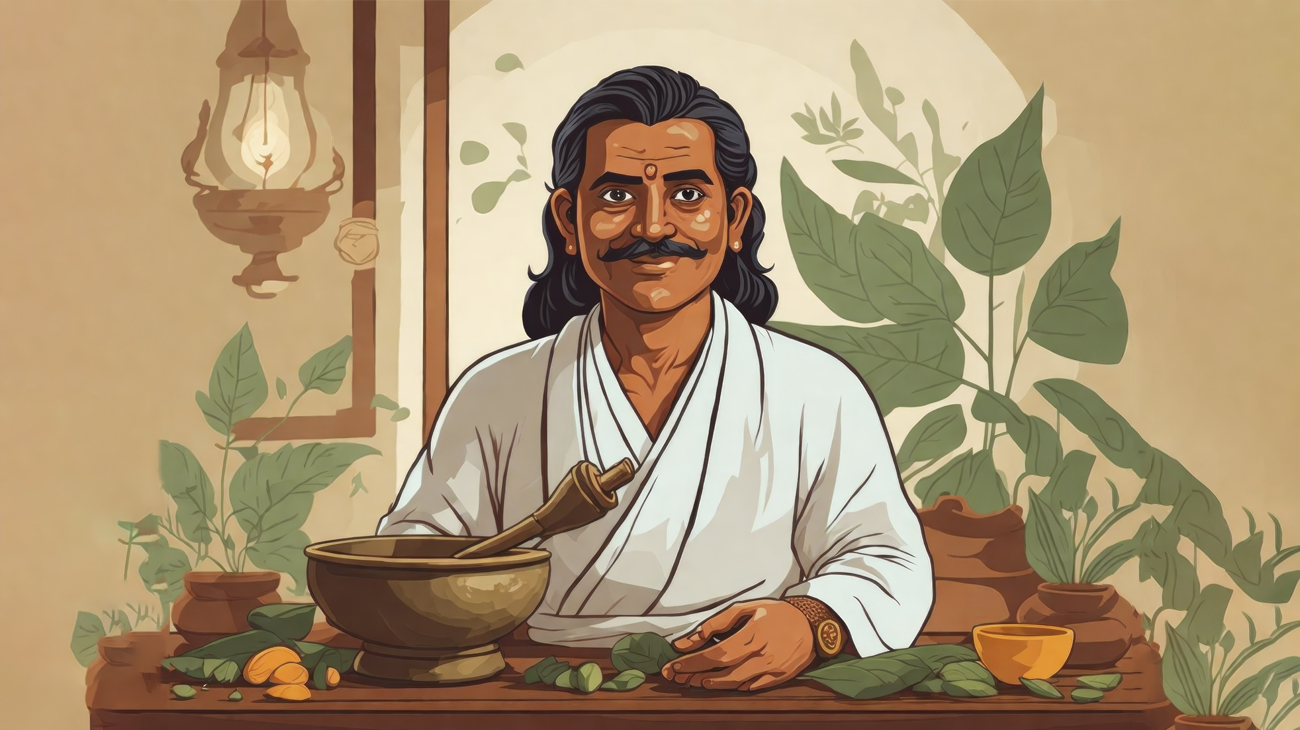India’s history is not just a chronicle of dynasties and empires; it’s also a treasure trove of medical knowledge and healthcare practices that have evolved over thousands of years. In this blog, we take a journey through time to explore
Ayurveda: The Ancient Indian System of Medicine

Introduction
India’s history is not just a chronicle of dynasties and empires; it’s also a treasure trove of medical knowledge and healthcare practices that have evolved over thousands of years. In this blog, we take a journey through time to explore the fascinating history of healthcare in India a journey that spans ancient texts, traditional systems like Ayurveda, and the cutting-edge technologies of modern medicine.
Ancient Wisdom - Ayurveda
The roots of healthcare in India can be traced back to the Vedic period, where the foundations of Ayurveda, one of the world’s oldest holistic healing systems, were laid. Ayurveda emphasizes the balance of mind, body, and spirit, and its ancient texts like the Charaka Samhita and Sushruta Samhita contain detailed knowledge of herbal remedies, surgical techniques, and disease management.
Traditional Medicine - Siddha and Unani
In addition to Ayurveda, India has a rich tradition of traditional medicine systems such as Siddha and Unani. Siddha, prevalent in South India, incorporates principles of alchemy and spirituality into its healing practices. Unani, on the other hand, has its origins in ancient Greece but was later enriched with Indian knowledge, emphasizing the balance of bodily humors.
Yoga and Mind-Body Connection
India gave the world the practice of yoga, which not only promotes physical well-being but also focuses on mental and spiritual health. The mind-body connection has been a fundamental aspect of healthcare in India for centuries, with yoga and meditation playing key roles in promoting holistic wellness.
Mughal Influence on Medicine
During the Mughal era, Indian medicine saw significant developments. Akbar the Great established hospitals and promoted the study of medicine. Mughal emperors like Babur and Jahangir were patrons of Unani medicine, further enriching India’s healthcare landscape.
Colonial Era and Modern Medicine
The colonial era brought Western medicine to India. The British established medical schools and hospitals, laying the groundwork for modern medicine. Prominent Indian physicians like Dr. Bidhan Chandra Roy played pivotal roles in advancing healthcare during this period.
Independence and Healthcare Infrastructure
After gaining independence in 1947, India made significant strides in healthcare infrastructure development. The establishment of the All India Institute of Medical Sciences (AIIMS) and the launch of the National Health Mission (NHM) are notable milestones in India’s healthcare journey.
Technological Advancements
Today, India is a hub for cutting-edge medical technology and research. Indian healthcare professionals are at the forefront of medical innovations, and the country is known for producing world-class doctors and scientists.
Challenges and Future Directions
Despite progress, India faces healthcare challenges such as access disparities, the burden of non-communicable diseases, and the need for improved healthcare infrastructure in rural areas. Telemedicine, artificial intelligence, and data-driven healthcare are promising avenues for addressing these challenges.
Conclusion
The history of healthcare in India is a testament to its rich cultural heritage and scientific prowess. From the ancient wisdom of Ayurveda to embracing modern medical technologies, India’s healthcare journey is a story of adaptation and innovation. As India continues to evolve as a global healthcare hub, the integration of traditional knowledge with modern practices paves the way for a healthier and more prosperous future for the nation and beyond.





